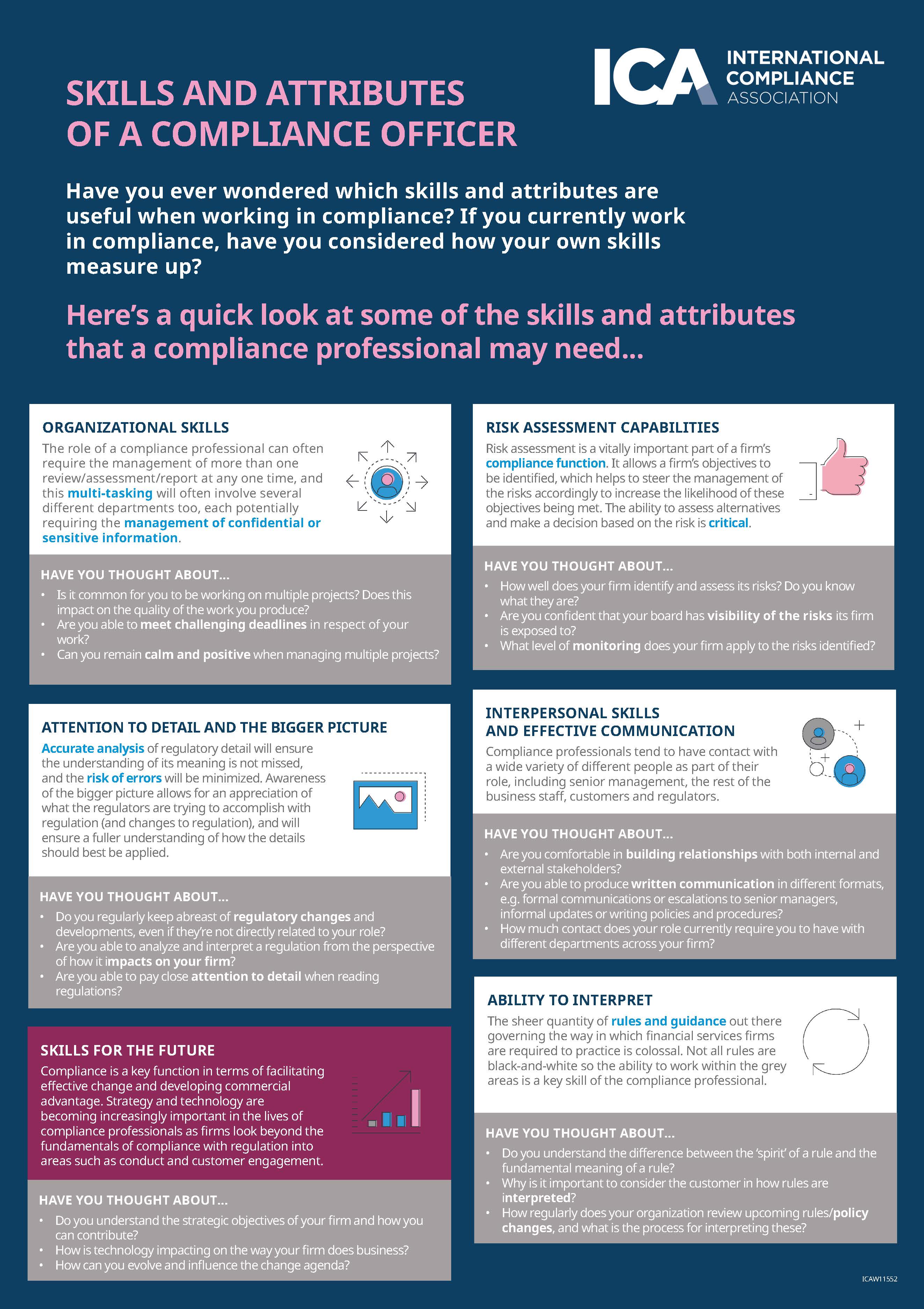
Thousands of compliance professionals all over the world undertake the ICA International Diploma in Governance, Risk and Compliance to boost their capabilities and skills.
Enrol now and enhance your career!_________________________________________________________________
This article forms part of the #BigCompConvo - Join us as we explore and debate the latest challenges and issues facing you and regulatory and financial crime compliance professionals all over the world. If you’d like to contribute an article as part of the Big Compliance Conversation get in touch with us at contributions@int-comp.org


